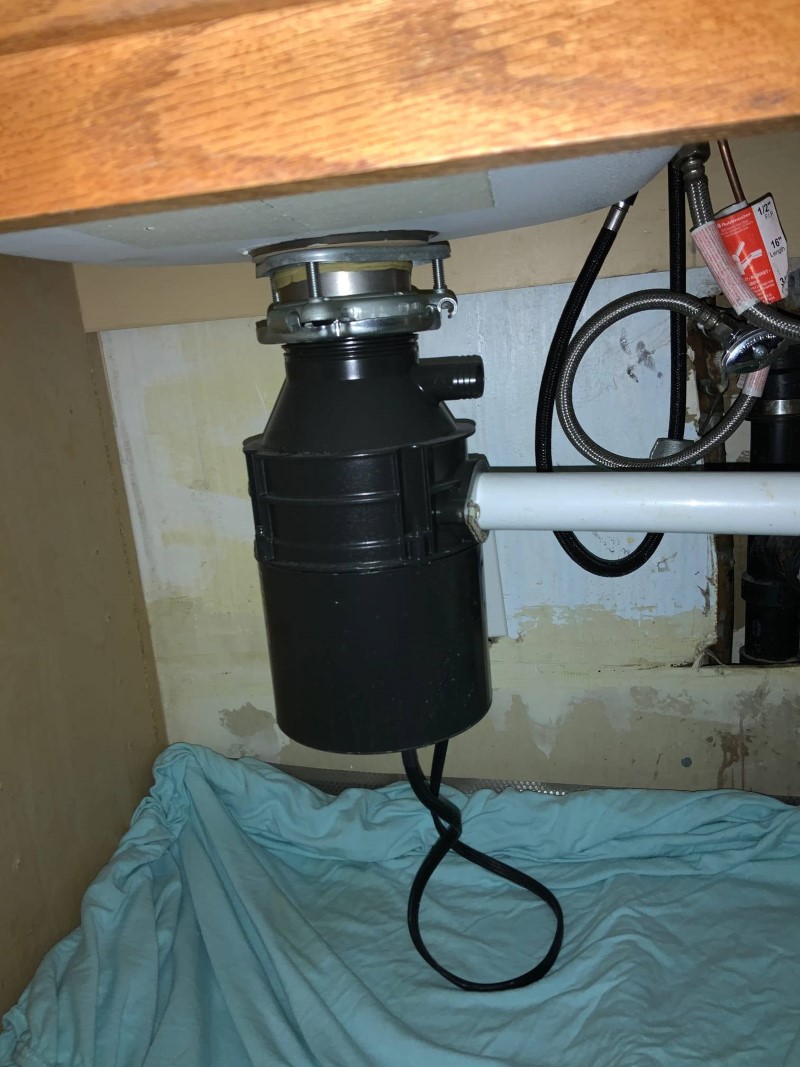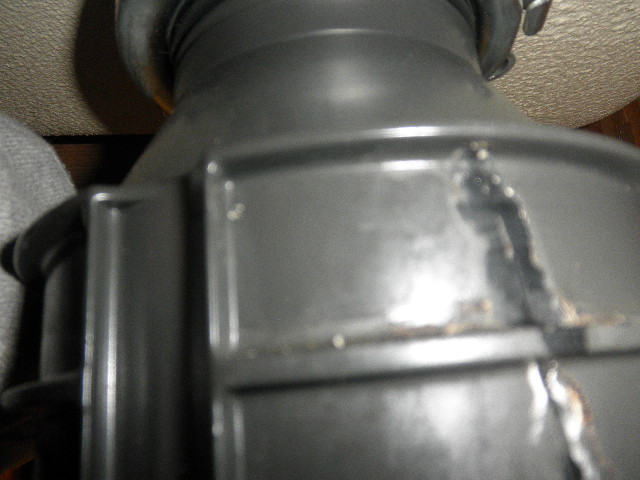Almost everyone maintains their private assumption when it comes to Why Is .

Garbage disposals are crucial kitchen home appliances that aid in dealing with food waste efficiently. Nonetheless, a leaking garbage disposal can be an irritating and untidy problem to manage. Thankfully, numerous leakages can be taken care of quickly with a couple of basic actions. In this post, we will certainly review just how to repair a dripping waste disposal unit efficiently.
Introduction
Waste disposal unit are installed under cooking area sinks and are created to shred food waste into smaller sized pieces, allowing it to travel through the plumbing system conveniently. While these gadgets are usually trusted, leaks can take place over time as a result of wear and tear, loose links, or damage to the system.
Step-by-Step Overview to Fixing a Leaking Waste Disposal Unit
Turn Off the Power
Before attempting any type of repair work, guarantee that the power to the garbage disposal device is switched off to prevent the danger of electrical shock.
Situate the Leakage
Determine the specific place of the leakage and identify the reason
Tighten up Connections
Utilize a wrench to tighten up any kind of loosened connections between the disposal device and the pipes system.
Replace Seals or Gaskets
If the leak results from worn seals or gaskets, get rid of the old components and replace them with brand-new ones.
Patching Fractures or Openings
For splits or holes in the disposal device, use epoxy or a suitable patching product to seal the damaged location.
Identifying the Resource of the Leakage
Before trying to repair a dripping waste disposal unit, it is vital to determine the resource of the leakage. This can typically be done through visual inspection or by conducting easy tests.
Visual Inspection
Evaluate the waste disposal unit unit thoroughly for any signs of water leak. Pay attention to areas around seals, gaskets, and connection factors.
Testing for Leakages
One way to examine for leaks is by running water via the disposal device and checking for any kind of visible indications of leak.
Common Root Causes Of Leakages in Trash Disposals
Worn Seals and Gaskets
Seals and gaskets play a crucial duty in protecting against water from leaking out of the garbage disposal. In time, these elements can degrade, bring about leaks around the disposal unit.
Loose Links
The connections between the garbage disposal and the plumbing system can come to be loosened gradually, triggering water to leak out during operation.
Cracks or Holes in the Disposal Unit
Physical damage to the garbage disposal, such as fractures or holes in the real estate, can additionally lead to leaks.
Tools and Products Needed for Repairing a Dripping Garbage Disposal
Prior to starting the repair service process, gather the required tools and products, consisting of a screwdriver, adjustable wrench, plumbing technician's putty, replacement seals or gaskets, and epoxy or patching product for repairing splits or holes.
Checking the Waste Disposal Unit After Repair Service
Once the fixing is total, test the waste disposal unit by running water via it to make sure that the leak has been dealt with.
Preventive Maintenance Tips to Prevent Future Leakages
To prevent future leaks, it is important to perform normal upkeep on your garbage disposal. This consists of keeping it clean, preventing placing non-food products or tough objects down the disposal, and occasionally looking for leakages or other issues.
Verdict
In conclusion, taking care of a leaking waste disposal unit is a fairly straightforward process that can be completed with fundamental devices and materials. By complying with the steps laid out in this write-up and exercising preventive maintenance, you can keep your waste disposal unit in good working condition and avoid costly repair work in the future.
HOW TO REPAIR A LEAKING GARBAGE DISPOSAL
The first thing to do if your garbage disposal starts to leak or exhibits other symptoms of wear and tear is to inspect the appliance quickly. Before making any repairs, check for any obvious cracks or damaged parts and turn the disposal off at the power source. Once you have located the issue, several tools might assist you in solving it. Many resources are available to assist you in putting your disposal back in working order, whether by purchasing new parts or professional assistance from a repair technician. So immediately act if you need help with leaky garbage disposal. You can rapidly resolve the problem and enjoy smoothly functioning appliances with thorough troubleshooting and help from web resources.
Food waste is disposed of using a garbage disposal system, which grinds and flushes it down the toilet. A garbage disposal is a motorized device with one or more rotating blades that grinds up food waste into little bits. They are commonly found under the kitchen sink. A dishwasher inlet or connector is often built into garbage disposals, allowing extra water to drain into the sink’s dishwasher. Several things, such as clogs, worn-out components, or damage to the inside walls of the unit, can bring on garbage disposal leaks or other problems.
WHAT ARE SOME COMMON PROBLEMS WITH GARBAGE DISPOSALS?
Jamming: One of the most frequent issues with garbage disposals is jamming. It occurs when hard or fibrous materials, such as bones, potato peels, or fruit pits, get stuck in the disposal’s blades or impeller. It can prevent the unit from operating correctly or cause it to make unusual noises. Clogging: If too much food waste or non-food items are put into the disposal at once, it can lead to clogging. Clogged disposal may result in slow drainage or a complete backup of water in the sink. Grease and fats can also solidify inside the disposal and contribute to clogging. Leaks: Garbage disposals can develop leaks over time. The most common areas for leaks are the sink flange, the discharge pipe connections, or the dishwasher connection. Leaks can cause water damage and need to be addressed promptly. Foul odors: Food residue can build up in disposal over time and cause unpleasant odors. Bacteria and mold growth inside the unit can also contribute to foul smells. Dull blades: The grinding blades in the disposal can become dull over time, resulting in inefficient chopping and grinding of food waste. That may lead to more frequent jams and increased strain on the motor. HOW CAN YOU TELL IF YOUR GARBAGE DISPOSAL IS LEAKING?
Visible water: Check underneath the sink where the garbage disposal is installed. If you notice water pooling or dripping around the unit or any adjacent pipes, it’s a clear sign of a leak. Musty odor: A persistent or moldy smell from your kitchen sink area could indicate a hidden leak. The moisture from a leaking garbage disposal can create a damp environment that promotes mold and mildew growth. Water damage: Examine the area surrounding the garbage disposal for any signs of water damage. Look for water stains, discoloration, or warping on the cabinet floor or walls beneath the sink. Decreased performance: A leak in the garbage disposal can affect its functionality. If you notice that the disposal is not grinding food waste properly or is making unusual noises, it could be due to water damage or a leak compromising its mechanisms. Rust or corrosion: Inspect the garbage disposal for any signs of rust or corrosion. A leaking unit can cause metal components to deteriorate over time. Look for rust-colored stains or deterioration on the disposal unit or surrounding pipes. https://theappliancepeople.com/how-to-repair-a-leaking-garbage-disposal/

Do you like reading up on Why Is ? Leave feedback down below. We would be delighted to see your opinion about this article. We hope to see you back again in the near future. I beg you take a moment to promote this content if you liked it. Thanks for your time. Come back soon.
Call